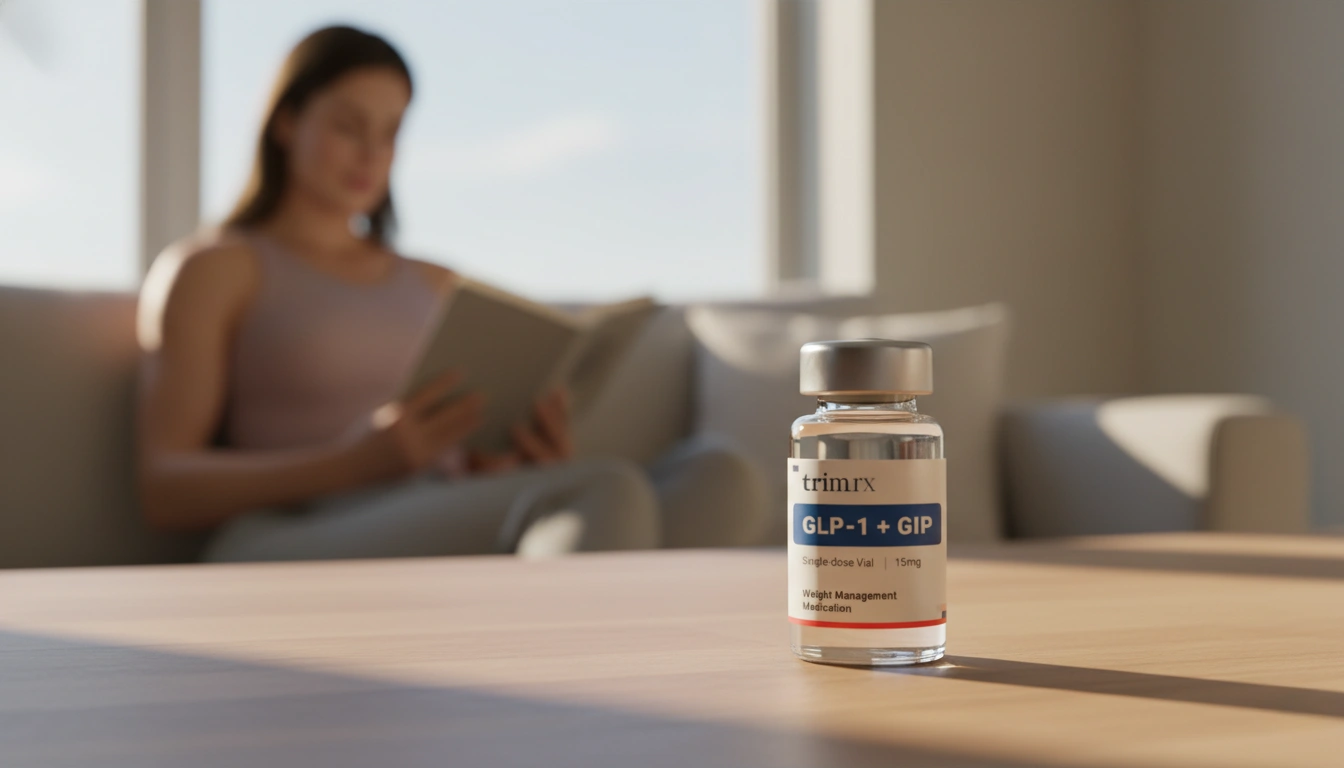Revolutionizing Weight Management: The Rise of Oral GLP-1 Medications

Introduction
Imagine a world where managing weight and blood sugar levels could be as simple as taking a daily pill instead of enduring weekly injections. For many, the thought of needles can be daunting, making adherence to treatment plans a challenge. Fortunately, advancements in medical research have led to the development of oral GLP-1 medications, offering an alternative for those who may be needle-averse.
The significance of this topic is underscored by the increasing prevalence of obesity and type 2 diabetes worldwide. According to the World Health Organization, over 650 million adults were classified as obese in 2016, and the Centers for Disease Control and Prevention (CDC) estimates that more than 37 million Americans have diabetes. The demand for effective, convenient treatment options has never been greater.
In this blog post, we will explore the current state of GLP-1 medications, particularly their oral forms, including their mechanisms of action, benefits, potential drawbacks, and what the future may hold. We aim to provide you with valuable insights that empower you on your journey toward better health.
In recent years, the landscape of weight management and diabetes treatment has undergone a remarkable transformation, particularly with the introduction of glucagon-like peptide-1 (GLP-1) receptor agonists. These medications have gained immense popularity for their effectiveness in managing weight and improving glycemic control. However, a common question many individuals have is: Are there any GLP-1 medications available in pill form?
As we explore this topic, we will delve into the current state of GLP-1 medications, focusing not only on those available in injectable forms but also those that can be taken orally. By the end of this post, you will have a comprehensive understanding of oral GLP-1 medications, their benefits, and what the future holds for this promising class of drugs.
Understanding GLP-1 Medications
What Are GLP-1 Medications?
GLP-1 medications are a class of drugs that mimic the action of the GLP-1 hormone, which is naturally produced in the body. This hormone plays a crucial role in glucose metabolism by stimulating insulin secretion, inhibiting glucagon release, and slowing gastric emptying. As a result, GLP-1 medications help lower blood sugar levels and support weight loss.
The most well-known GLP-1 medications include:
- Ozempic® (semaglutide): An injectable medication approved for the treatment of type 2 diabetes and weight management.
- Wegovy® (semaglutide): Specifically approved for weight loss in individuals with obesity.
- Rybelsus® (oral semaglutide): The first oral GLP-1 medication approved for type 2 diabetes.
The Rise of Oral GLP-1 Medications
The introduction of Rybelsus marked a significant milestone as it became the first oral GLP-1 receptor agonist available. Approved by the FDA in September 2019, Rybelsus offers a promising alternative to those who prefer oral medications over injections. While the injectable forms have shown significant efficacy in managing weight and diabetes, the ease of taking a pill could lead to improved adherence and outcomes for many patients.
The Mechanism of Action of Oral GLP-1 Medications
How Does Oral Semaglutide Work?
Oral semaglutide, the active ingredient in Rybelsus, utilizes a unique formulation that enhances its absorption in the gastrointestinal tract. The medication is co-formulated with an absorption enhancer, sodium N-(8-[2-hydroxylbenzoyl] amino) caprylate (SNAC), which helps protect the drug from degradation and facilitates its absorption.
Once ingested, oral semaglutide works similarly to its injectable counterparts by:
- Stimulating Insulin Secretion: In response to elevated blood glucose levels, it promotes the release of insulin from the pancreas.
- Suppressing Glucagon Release: It reduces glucagon secretion, which helps prevent the liver from producing excess glucose.
- Slowing Gastric Emptying: By delaying the emptying of the stomach, it helps control appetite and reduces food intake.
Benefits of Oral GLP-1 Medications
Convenience and Accessibility
One of the most significant advantages of oral GLP-1 medications is their convenience. Patients no longer need to worry about self-injecting or disposing of needles, making it easier to integrate these medications into their daily routines. This convenience may lead to increased adherence, particularly among individuals who are hesitant to use injections.
Efficacy in Managing Weight
Clinical studies have demonstrated that oral semaglutide is effective for weight loss. In trials, participants without diabetes who took oral semaglutide daily for 68 weeks lost an average of 15% of their body weight, comparable to the results seen with injectable forms of semaglutide. This indicates that oral GLP-1 medications can be a viable option for individuals struggling with obesity.
Fewer Injection-Related Side Effects
While all GLP-1 medications can cause gastrointestinal side effects such as nausea and vomiting, oral medications may reduce the risk of injection-related issues, such as site reactions or discomfort. This aspect can be particularly appealing to patients who experience anxiety about needles or have a history of injection site complications.
Potential Disadvantages of Oral GLP-1 Medications
Need for Strict Administration Guidelines
To maximize the efficacy of oral semaglutide, it must be taken on an empty stomach, with no food, drink, or other medications for at least 30 minutes afterward. This strict regimen can be a barrier for some patients, especially those who take other medications that require similar timing. Failure to adhere to these guidelines may reduce the overall effectiveness of the medication.
Gastrointestinal Side Effects
As with all GLP-1 medications, oral semaglutide can cause gastrointestinal side effects, including nausea, vomiting, and abdominal discomfort. While these side effects are generally mild to moderate and tend to diminish over time, they can still impact the overall experience of using the medication.
Comparisons with Injectable Forms
While Rybelsus has shown efficacy, some studies suggest that injectable GLP-1 medications may offer superior results in terms of weight loss and blood sugar control. As research continues, it will be essential to monitor how oral forms compare with their injectable counterparts regarding long-term outcomes and side effects.
The Future of Oral GLP-1 Medications
Innovations on the Horizon
The success of Rybelsus has paved the way for further research into oral GLP-1 medications. Pharmaceutical companies are actively developing new formulations and analogs that could offer similar or improved benefits without the need for injections. For instance, Eli Lilly is working on orforglipron, an oral GLP-1 drug that aims to provide a more flexible dosing regimen without the strict meal-timing requirements associated with oral semaglutide.
The Potential for Weight Maintenance
Experts believe that oral GLP-1 medications could serve as an effective option for weight maintenance after achieving significant weight loss through injectable therapies. This could provide patients with a more manageable long-term solution and help prevent weight regain.
Conclusion
The emergence of oral GLP-1 medications marks a promising advancement in the field of weight management and diabetes care. While Rybelsus currently stands as the only FDA-approved oral GLP-1 medication, its success paves the way for future innovations aimed at improving accessibility and convenience for patients.
As we continue to explore the realm of GLP-1 medications, it is imperative to recognize that these treatments should be used alongside lifestyle modifications for optimal results. At TrimRx, we are committed to providing personalized weight loss solutions that cater to individual needs, empowering our clients on their journeys toward healthier lifestyles.
If you are interested in learning more about whether you may be a candidate for GLP-1 medications, we invite you to take our free assessment quiz. This personalized quiz is the first step toward receiving a tailored treatment plan that fits your unique circumstances. Together, we can embark on this journey to better health.
FAQ
Are there currently any FDA-approved oral GLP-1 medications for weight loss?
As of now, Rybelsus (oral semaglutide) is FDA-approved for the treatment of type 2 diabetes but not specifically for weight loss. However, it has shown significant weight loss results in clinical trials.
How does oral semaglutide compare to injectable GLP-1 medications?
Oral semaglutide has demonstrated efficacy comparable to injectable forms in clinical trials, but injectable medications may offer superior results in some cases. The choice between the two should be based on individual preferences and medical guidance.
What are the common side effects of oral GLP-1 medications?
Common side effects include gastrointestinal issues such as nausea, vomiting, and abdominal pain. While these side effects are typically mild to moderate, they can impact patient adherence.
How should oral semaglutide be taken for optimal effectiveness?
Oral semaglutide should be taken on an empty stomach, with no food, drink, or other medications for at least 30 minutes afterward. Adhering to these guidelines is crucial for maximizing its effectiveness.
What is the future outlook for oral GLP-1 medications?
Ongoing research aims to develop additional oral GLP-1 medications that may offer improved efficacy and convenience. The potential for innovative formulations suggests a promising future for this class of drugs.

Transforming Lives, One Step at a Time
Keep reading
China’s Supreme Court Upholds Semaglutide Patent for Novo Nordisk
China’s Supreme People’s Court upholds Novo Nordisk’s semaglutide compound patent, supporting IP protection.
Over 600,000 Californians Risk Losing Access to GLP-1 Weight-Loss Drugs
California’s Medi-Cal will stop covering GLP-1 weight-loss drugs for weight-loss-only prescriptions, effective Jan. 1, 2026.
Weight-Loss Pill Approval Likely to Prompt Overhaul of Packaged Food and Fast-Food Products
FDA approval of GLP-1 weight-loss pills may prompt food makers and restaurants to shift to high-protein, smaller-portion products.



